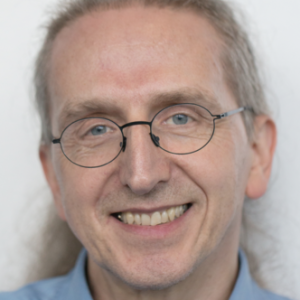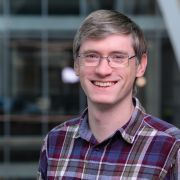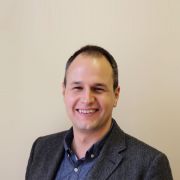
How theory can address the challenges in AI
This special event on Theory and AI is organised in collaboration with
the Centre for Machine Intelligence
(CMI).
Panel discussion on how theory can address/contribute to the challenges in AI.
The event takes place on Tuesday 9t April in the Diamond, DIA - LT 2 , Diamond Basement, 32 Leavygreave Rd, Broomhall, Sheffield S3 7RD.
Directions via Google maps.
How theory can address the challenges in AI - e.g. transparency, regulation, safety, control.
As Artificial intelligence (AI) systems become more powerful and ubiquitous, how can we ensure that AI is trustworthy and understandable? In this event we bring together members of The Foundations of Information and Knowledge Systems (FoIKs) community and members of the AI community at the University of Sheffield to explore both opportunities and obstacles for theory and formal methods to address the challenges of AI, and potential ways forward. The event will feature short talks and perspectives from our panel members, a panel discussion with audience Q & A, and a networking reception.
Schedule
| 17:00 | Gathering at the Diamond |
| 17:15 | Introduction to the session - Franz Baader (TU Dresden) , "It‘s about Truth, Stupid!”.
Short talks/perspectives from: Giuseppe De Giacomo (University of Oxford), Inaki Esnaola (University of Sheffield); Matt Ellis (University of Sheffield). |
| 17:45 | Panel Discussion with audience Q and A |
| 18:15-20:00 | Networking reception with drinks and savoury bites follows. |
| 20:00 | Close |
Panelists:
- Franz Baader - Professor at TU Dresden and Director of the Institute for Theoretical Computer Science at TU Dresden (Germany)
- Giuseppe De Giacomo - Professor of Computer Science at the Department of Computer Science of the University of Oxford
- Iñaki Esnaola - Senior Lecturer (Associate Professor), Department of Automatic Control and Systems Engineering at the University of Sheffield, UK, and a Visiting Research Collaborator in the Department of Electrical Engineering at Princeton University, NJ, USA
- Matt Ellis - Lecturer in Machine Learning, Department of Computer Science at the University of Sheffield
Special requirements:
If you have special access requirements and/or dietary requirements and/or any other requirements please let us know about these in advance: foiks2024-group@sheffield.ac.uk
This event is open to registered participants for FoIKs 2024 and staff and students of the University of Sheffield.
On arrival: this event is out of hours. You may be asked for your proof of registration for access to the building; please bring your conference badge/conference id/u-card with you.
Panelists

Franz Baader is full professor for Theoretical Computer Science at TU Dresden (Germany) since 2002 and director of the Institute for Theoretical Computer Science at TU Dresden since 2005. He has received his doctoral degree (Dr.-Ing.) in Computer Science from the University of Erlangen-Nürnberg in 1989, and from 1989 to 1993 was senior scientist and project leader at the Germany Research Center for Artificial Intelligence (DFKI) in Kaiserslautern and Saarbrücken. From 1993 to 2002 he was professor for Theoretical Computer Science at RWTH Aachen.
His main research area is Logic in Computer Science, and there in particular Automated Deduction and Knowledge Representation. He and his research group have worked on Description Logics for 30 years, and have laid the the logical and algorithmic foundations for the Description Logics underlying OWL and the OWL 2 profile OWL 2 EL. Franz Baader is a fellow of the European Association for Artificial Intelligence (EurAI) since 2004 and a member of the Academia Europaea since 2011. In 2020 he received the Herbrand Award for Distinguished Contributions to Automated Reasoning.

Giuseppe De Giacomo is a Professor of Computer Science at the Department of Computer Science of the University of Oxford and a Governing Body Fellow at Green Templeton College. He was previously a Professor at the Department of Computer, Control and Management Engineering of the University of Roma "La Sapienza". His research activity concerns theoretical, methodological, and practical aspects in different areas of AI and CS, most prominently Knowledge Representation, Reasoning about Actions, Generalized Planning, Autonomous Agents, Reactive Synthesis and Verification, Service Composition, Business Process Modeling, and Data Management and Integration. He is an AAAI Fellow, ACM Fellow, and EurAI Fellow. He received an ERC Advanced Grant for the project WhiteMech: White-box Self Programming Mechanisms (2019-2024). He was the Program Chair of ECAI 2020 and KR 2014. He is on the Board of EurAI. He chairs the steering committee of the new EurAI yearly summer school ESSAI.

Dr Matthew Ellis is a Lecturer in Machine Learning and member of the Machine Learning Group at the Department of Computer Science.
He graduated with a MPhys in Theoretical Physics from the University of York in 2011, before staying at York to undertake a PhD in Physics under Prof. Roy Chantrell.
After completing his PhD in 2015 he joined the group of Prof. Stefano Sanvito at Trinity College Dublin as a post-doctoral research fellow. In 2019, he joined the University of Sheffield as a post-doctoral research associate in the Bio-Inpsired Machine Learning group under Prof. Eleni Vasilaki developing machine learning models for neuromorphic computing in collaboration with the Department of Materials Science.

Iñaki Esnaola is a Senior Lecturer (Associate Professor) at the Department of Automatic Control and Systems Engineering at the University of Sheffield, UK, and a Visiting Research Collaborator in the Department of Electrical Engineering at Princeton University, NJ, USA. He obtained a combined BSc and MSc in Telecommunication Engineering from University of Navarra, Spain, in 2006 and the PhD in Electrical Engineering from University of Delaware, DE, USA, in 2011. In 2010-2011 he was a Research Intern at Bell Laboratories, Alcatel-Lucent, Holmdel, NJ, USA, and in 2011-2013 he was a Postdoctoral Research Associate at Princeton University. His research lies at the broad interface of information theory and machine learning with an emphasis on the application to cyber-physical systems. More specifically, he is interested in the fundamental limits governing robust data acquisition and state estimation for systems operating with incomplete or mismatched model descriptions.